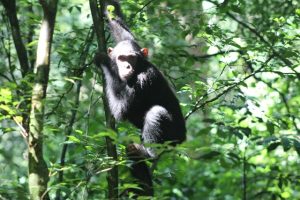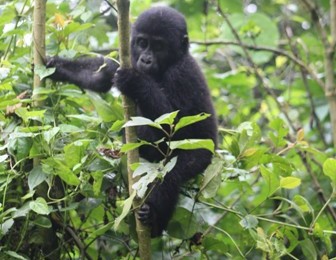Gorilla trekking is number one in the top things to do in Uganda. Many tourists visiting Africa for safaris will include a detour to Uganda for just the gorilla trek. Many however are put off by the cost of a gorilla trip in Uganda and do not know what really makes the trip expensive.
Below I will guide on the costs involved in a gorilla trip, and how one can, may be, get a cheap gorilla tour in Uganda.
Gorilla tracking permits
The gorilla trekking permit or pass or ticket, is the most important item of the gorilla trip. It is also a significant cost of the trip.
The price of the gorilla permit in Uganda is USD 700 for international tourists visiting Uganda. The price is different for the locals, and foreign east African residents.
The price of the gorilla permit does not change.
When booking a gorilla trip ensure that your gorilla permit has been purchased at the time of booking because the permits are limited and sell out quite fast. A maximum of 8 persons can track a gorilla family in a day, and there are only about 15 habituated gorilla families.
Note that the Uganda gorilla permit is way cheaper compared to the Rwanda gorilla trekking permit which is USD 1500. But there are also advantages of tracking gorillas in Rwanda vs Uganda and you can read this article where I compare gorilla trekking in Uganda vs Rwanda.
Accommodation and meals
The gorilla parks Bwindi Impenetrable National Park and Mgahinga Gorilla National Park are located far from Kampala and Entebbe which are normally the starting points for a gorilla trip in Uganda. The journey by road is about 8hours drive.
That means you can not visit the gorillas in one day.
You need to overnight near the park before the gorilla trek, and then also after gorilla trekking because you may return from the park in the late afternoon and you can’t drive back to Kampala or Entebbe immediately.
In short, you need at least 2 nights of accommodation near the park.
Accommodation is a varying cost as there are different types of lodging/hotels ranging; basic camping, budget, midrange and luxury lodges. So you choose accommodation depending on your budget and the level of comfort that you need.
An overview of the pricing of the different accommodation types:
Budget cost between USD70 – USD150
Midrange cost between USD250 – USD400
Luxury cost USD600+
Transportation to gorillas
The distance from Kampala or Entebbe to the parks is more than 500km so obviously you need transportation.
You can travel by air or by road using a car.
Traveling by air is more costly with a return ticket by Aerolink costing close to 500USD (USD 472 for 2021 – 2022)
Most trips are by road with a car. Most of the road is smooth tarmac/paved but the feeder roads to the parks and within the parks are untarmacked/unpaved and rough so needing a four-wheel car.
We use two types of cars, the tour vans and the bigger customized safari land cruisers. Both are four-wheel drive, but during the long rainy season from Mar to May, a land cruiser may be preferred because the roads become so slippery and a much more stable car like the safari land cruiser is a better choice.
The tour vans cost about 70USD per day. While the land cruisers cost 150 USD per day.
Fuel consumed is about 200 USD
The tour driver is paid about 60 USD per day.
Porters
For your gorilla trek you can take a porter which I highly recommend because the time taken to find the gorillas is unpredictable & the terrain is quite rugged and mountainous, so it can be very tiring and challenging if for the seasoned hikers. The porter is very helpful in carrying your daypack and provide a push or pull where needed during the trek.
The porters are hired at $15
Taking a porter is also one way of directly supporting the locals.
Tipping
Tipping is not compulsory, however recommended as one of the ways to directly put some money in the pockets of the locals.
You expect to tip the following people and the amount I can recommend. You can always tip more or less.
Tour driver ($15 – $20 per day), park guide ($15), porter ($10), about 2 lodge waiter/waitresses ($5 – $10)
Souvenirs
You can support the local artisans by purchasing some of their items. Items include printed t-shirts, small wooden curvings of gorillas, crafted trekking sticks, etc… The items cost from $15 to $30
| Items | Cost |
| Gorilla tracking permit | |
| Tour car | *multiply by number of days |
| Fuel | |
| Tour driver | *multiply by number of days |
| Hotel on full board | *multiply by number of nights |
| Porter | |
| Tips | |
| Souvenirs |

